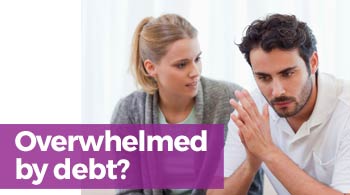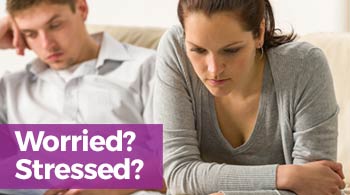Debt Consolidation Loans
Write Off Up To 50% Of Debt
Reduce Your Outgoings Significantly
Enjoy Complete Peace Of Mind
We Can Help
Apply NowFriendly Experts are Ready to Help!
 Overwhelmed by bills
Overwhelmed by bills
Stressed and worrying with sleepless nights?
 Debts Consolidated
Debts Consolidated
One simple monthly payment to manage your money.
 Peace of Mind
Peace of Mind
Putting you back in control with manageable outgoings.
Welcome to

No. 1 in the UK
Debt Consolidation Loans
Debt Consolidation Loans is a UK-based finance brokerage company with a team of debt consolidation specialists and years of experience within the industry. Whether you are struggling to repay multiple debts or need some peace of mind about managing your finances, we may be able to help. Our mission is to help people find their way out of debt by offering consolidation loans to make repayments simpler.
- Years of experience in the finance industry
- Large panel of debt consolidation loans lenders
- Personal approach to application reviews
- Bad credit applications considered
- Easy online application process
- FCA authorised, responsible broker service
As a fee-free broker service, we search the largest panel of loan lenders available to help find the best debt consolidation loans for you, based on your requirements. Once we have found a solution for you, our debt consolidation lenders will send out any paperwork by post or email. While we can offer general advice, each of our lenders has dedicated support services should you need to get in touch with them about your application.
If you are ready to get started with your Debt Consolidation Loans application, simply fill out our online application form and our team will work quickly to return with a lending decision.
Debt Consolidation Loans can help with a single payment loan that consolidates all your other loans into one simple monthly payment.
- Struggling to pay your monthly bills?
- Nervous when the phone rings?
- Sleepless nights?

Putting you back in control.
What Are Debt Consolidation Loans?
Debt consolidation loans in the UK are designed to help those who are struggling with repaying multiple debts. They offer applicants the chance to apply for enough funds to cover their debts and other unsecured liabilities to make monthly repayments simpler. By consolidating their debts into one figure, customers can work with more flexible repayment options and may even pay less due to the reduced interest rate.
Usually, it is not the size of the debt that is the problem, but the number of lenders and corresponding repayments that need to be made. They may need to be paid to different lenders or banks at various times of the month, which may be tricky to manage. Consolidation loans combine each of these into a manageable monthly payment, giving customers a way to budget, as well as make regular payments on a set date each month.

Why Consolidate Your Debts?
There are several benefits to debt consolidation, particularly if you find yourself making repayments at different times of the month in varying amounts. However, like with all other types of credit, it is something that should be considered carefully to ensure you are not left in a tricky situation.
- You could improve your monthly budget – debt consolidation loans enable you to group your existing debts into one sum, which means that they monthly repayments may be easier to manage. As you will only need to pay one fee each month, they can be a lot simpler to include in your budget.
- The potential to reduce overall repayments – if the interest rate is less than the combined total interest of the previous debts, you may save money each month. Rather than paying multiple fees, each with varying interest rates, you will have one payment with a single interest rate.
- You could boost your credit rating – by paying the total amount of the loan in full, you will be proving you are a responsible borrower. This can boost your credit rating and potentially provide more options if you apply for credit in the future.
- Peace of mind – being burdened by stress or worry is not good for anyone, especially when it comes to personal finances. By combining your debts into a more manageable figure and having a scheduled repayment date each month, your mind could be eased.
Debt Consolidation Loans FAQs
Here’s a list of some of the most common questions about debt consolidation loans. If you need any help, contact the team.
Which Debts Can I Consolidate?
Typically, you can consolidate any debts that require you to make repayments with interest. This can include credit card bills, mortgage payments, car loans, store cards, and utility company debt.
What Should I Consider Before Consolidating My Debt?
The aim for anyone that takes out debt consolidation loans in the UK is to become debt-free as soon as possible. It is essential to ensure that your debt consolidation agreement will not leave you in the same position for a longer period of time, so consider your affordability. You should also check the amount of interest gained in your new agreement will not outweigh the savings made by switching to a consolidation loan. If you are uncertain about your future position, such as health or employment, this is something else to bear in mind before applying.
Why Should I Consider Debt Consolidation Loans?
Debt consolidation loans in the UK can offer a variety of benefits to those with multiple debts. They can help you to budget your personal finances, offer the potential to pay less overall, make repayments much more manageable, and potentially boost your credit rating if you make repayments on time.
How Does Debt Consolidation Affect Credit Scores?
Getting on top of your finances can – sometimes – feel like an impossible feat, but there are some straightforward ways to do this. A debt consolidation loan could be an option that works for you. After all, it allows you to pay off your creditors and seize back control over your own financial wellbeing. It is really important however, and this is all part of you getting back on track, that you understand everything about a loan like this and how it might impact your credit score.
What Are Some Disadvantages Of Debt Consolidation?
Consolidation loans in the UK reduce the interest rate and monthly instalment significantly, but it must be kept in mind that one must consider the repayment schedule before consolidating all the liabilities into one. The repayment schedule must be checked properly to have a clear idea about your duration and interest rates. Customers should always compare interest rates with an existing loan before getting debt consolidation.
We genuinely want to help all of our customers better manage their finances and work towards a debt-free future.
Why Could A Debt Consolidation Loan Reduce My Interest?
Debt Consolidation Loans aren’t just a way to simplify multiple loan repayments, but can actually reduce the amount of interest you’re paying back to multiple lenders. Having different loans on the go with different APR’s will lead to many people losing track of their finances and paying through the nose on extra interest costs. For consumers who find the right debt consolidation loan for them, with a lower interest rate, they’ll be able to significantly decrease their overall costs.
One of the most common reasons our customers take out a Debt Consolidation Loan is to help alleviate credit card costs. Credit cards, in particular, are tempting to take out further loans and end up in a vicious circle of debt.
This isn’t aided by the fact that many credit card providers encourage their customers to make very small repayments, which only serves to further increase the strain created by incredibly high-interest rates. These small repayments can also cause consumers to falsely believe they have more disposable income than they do in reality, distracting them from the ongoing costs that are building up due to their cards.
Short term 0% interest rates can also lure customers in with offers that look tempting at first, but upon closer inspection are designed to maximise the amount of money taken out, even when those making use of the cards can’t really afford to pay the loan back in time.
Credit card companies will make plenty of money as a result, but this will leave customers out of pocket.
Debt Consolidation Loans, on the other hand, do not usually include such temptations, and work with the customer in their aim to pay off their debts, rather than further adding to those debts in a way that is not sustainable.
Where Can I Receive Debt Consolidation Counselling?
There are different places you can receive debt consolidation counselling. It’s an option when you find yourself in debt.
What advice and how much is charged for the counselling depends on where you seek the advice.
It’s worth looking at fee assistance before considering an organisation which charges a fee, especially if each month is very tight with funds.
The Places To Seek Free Debt Consolidation Counselling
Consumer Credit Counseling Service (CCCS)
A registered charity which offers management advice including consolidation. You can get help over the phone or online, but it’s all anonymous. There’s also a tool called Debt Remedy which helps to offer options to debt problems, which includes whether a debt consolidation loan is suitable. You can also discuss ways to financially plan, via a money management tool, which also helps to avoid debt in the future. They can also offer free bankruptcy avoidance and support advice and discuss and explain what Individual voluntary arrangements (IVAs) are.
National Debtline
There is a National Debtline, which offers confidential debt management, debt consolidation advice, which is totally independent. You can either email them or call. They have an online money advice tool called ‘My Money Steps’ which provides a personalised way to handle debt via an action plan. Depending on which country you are in is which website to head for i.e. England, Wales, Northern Ireland or Scotland. This is purely because there are different laws for different countries. They also have a lot of relevant articles and info on all their websites regarding debt consolidation counselling.
Directgov
For UK residents, it’s worth looking at Directgov, which is the official government website. There’s an area dedicated to talking about money matters, which includes debt management, arrears, debt repayment options, including debt consolidation loans, debt advice for young people is also available, as well as bankruptcy.
If you’ve called all the free resources for debt consolidation advice, then paying for advice is possibly the only other route to head towards.
Friends & Family
Another resource you could try is to ask friends or family to help you with a temporary loan, even if it’s just to help pay for the consolidation loan company’s advice and to get you to that one monthly payment to make your debt manageable.
Paid Debt Consolidation Credit Counseling Sources:
Debt consolidation companies
You can apply for a debt management plan via a debt consolidation company. They then may be able to help people to locate and apply for consolidation loans. Their debt specialists negotiate with creditors on your behalf to try to reduce your payments. They allocate one single monthly payment amongst all your creditors in the agreed amounts.
Mediation
If you owe under £5k, then for £50+vat an hour, you can see if you can come to an agreement with your creditors about your debts, the representative from the mediation service helps both sides to come to an agreed way forward.
Solicitors
There are a few solicitors who offer their services for free, others for a fee, who may be able to help you sort out a debt management plan. There are also some legal advice agencies who offer free advice, again others may charge – worth asking upfront before you start discussing your debt in great detail.
Financial planners
There are some financial planners who are experts in assisting with the management of debt and also filing bankruptcy.
Loan consolidation officers
You can also find some loan consolidation officers, who are like financial planners and have the ability to help with your financial issues.
What Type Of Loans For Debt Consolidation Are Available?
There are several types of debt consolidation loans available, but with our brokerage service, we will take out all the guesswork and research. When you apply with Debt Consolidation Loans, our team will personally consider your application to ensure affordability. They will find the best debt consolidation loans from our panel of lenders to suit your needs, so you can be sure that you are in safe hands.
- Secured Consolidation Loans – this type of debt consolidation is secured against a high value asset as a guarantee to the lender. This could include your home or your car. While this option is risky for the applicant, most offer lower interest rates than other types. It is essential to assess the terms and conditions of your chosen debt consolidation before making the decision.
- Unsecured Consolidation Loans – these can be used if you are worried about securing a loan against an asset. These may have higher interest rates because there is no collateral, but this type is less of a risk to the applicant. This type of debt consolidation is also available to a wider range of people, as you do not need a high value asset to secure it against.
- Bad Credit Debt Consolidation Loans – this type of loan typically falls into the unsecured category, but they are specifically aimed at applicants with poor credit. Many of our lenders are understanding of their customers’ personal situations and are happy to consider applications on an affordability basis. It can be useful to have a guarantor to reassure the lender, but sometimes, it is not a necessity.
Each type will provide enough funds to cover your debts, which may allow you to manage your budgets better, pay off your debts quicker, and give you peace of mind. However, if you are worried about making repayments or your financial situation, please seek support from the Money Advice Service.


We can help

Debts Consolidated

Manageable Payments
How Debt Consolidation Loans In The UK Work
When you apply for a loan with Debt Consolidation Loans, our team take a personal approach to assess each application. Our dedicated team understand your circumstances and the stress that can come along with managing multiple debts. This is why they review each application in detail to determine your affordability and seek out a lender from our panel that suits your needs.
We use a soft credit search to find you a debt consolidation lender, and we can assure you that this process does not affect your credit rating. It simply allows our lenders to get a good judgement on your circumstances.
Once we have found the best debt consolidation loans for you, our lenders will send out your paperwork straight away, either by post or email. If you have any issues with completing the paperwork or providing the required documentation, our panel of lenders offer dedicated support services that allow you to get as much assistance as required.
Choose Debt Consolidation Loans To Help You
At Debt Consolidation Loans in the UK, our applicants are our top priority. We offer a personalised approach to our application process and will check for affordability to ensure that no applicant is left out of pocket. We also aim to offer flexibility in our repayment plans and a set date each month for repayments to be made, giving our customers peace of mind.
We consider all applications and will only turn prospective borrowers away if we feel that they may struggle to meet repayments. However, our team will go over your application with you for reassurance. There are no fees for using our service and our soft search will not damage your credit rating, so we can cater to a variety of needs.
If you would like any more information about our services, please do not hesitate to contact us. If you are ready to start searching for debt consolidation loans in the UK, please apply now.
